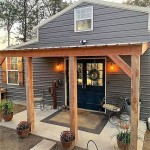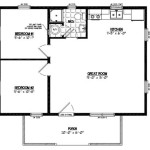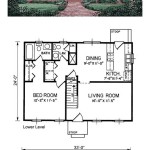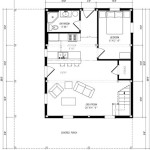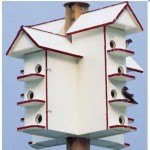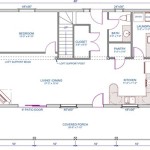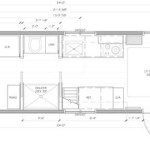Guest House Plans: What to Consider For Your Property in Korea
The popularity of guesthouses in South Korea has surged in recent years, driven by increasing tourism, a growing preference for unique and affordable accommodations, and a thriving sharing economy. For property owners considering entering this market, a thorough understanding of the key factors that contribute to a successful guesthouse operation is crucial. This includes careful planning, consideration of local regulations, an understanding of target demographics, and a commitment to providing quality service. This article outlines essential aspects to consider when developing guesthouse plans for a property in Korea.
Location, Location, Location: Strategic Site Selection
Location is paramount to the success of any guesthouse. A strategic site selection process should consider accessibility, proximity to attractions, and overall neighborhood character. For international travelers, ease of transportation is a significant factor. Properties located near subway stations, bus stops, or major transportation hubs are more likely to attract guests. Furthermore, the proximity to popular tourist destinations, historical sites, cultural landmarks, shopping districts, and entertainment venues will greatly enhance the guesthouse's appeal.
Beyond mere proximity, the character of the neighborhood itself plays a vital role. A vibrant and safe neighborhood with local markets, cafes, and restaurants can offer guests an authentic Korean experience. Conversely, a noisy or unsafe area can deter potential visitors. Therefore, a comprehensive analysis of the surrounding environment is essential before finalizing a property.
Market research is equally important. Identifying target demographics, such as budget travelers, backpackers, families, or business travelers, will help determine the ideal location. Backpackers may prefer areas with a lively nightlife and affordable dining options, while families may prioritize quieter neighborhoods with parks and recreational facilities. Understanding these preferences will guide the selection of a location that caters specifically to the intended clientele.
Consider the regulations specific to the area. Some districts may have restrictions on operating commercial establishments within residential zones. Confirming zoning regulations and obtaining the necessary permits and licenses is crucial to avoid legal complications.
Navigating Korean Regulations and Permits
Operating a guesthouse in Korea requires adherence to a complex web of regulations and permits. Understanding and complying with these requirements is non-negotiable. The primary legislation governing guesthouse operations is the Public Health Control Act (공중위생관리법). This act outlines the standards for hygiene, safety, and facilities that guesthouses must meet.
The first step is to register the guesthouse as a business with the local government. This involves submitting an application along with supporting documents, such as the property deed, building plans, and proof of insurance. The local government will then conduct an inspection to ensure that the property meets the required standards.
Separate permits may be required for food preparation and service if the guesthouse plans to offer breakfast or other meals. This often necessitates obtaining a food hygiene certificate and adhering to strict food safety regulations.
Fire safety is another critical aspect of compliance. The property must be equipped with fire extinguishers, smoke detectors, and emergency exits that meet the standards set by the fire department. Regular fire safety inspections are mandatory.
Furthermore, guesthouses are required to collect and remit value-added tax (VAT) on their revenue. Understanding the tax obligations and complying with reporting requirements is essential for maintaining a legally compliant operation.
It is highly recommended to seek professional advice from legal and accounting professionals familiar with Korean regulations. This will help navigate the complexities of the regulatory landscape and ensure compliance with all applicable laws.
Designing for Comfort and Cultural Sensitivity
The design of a guesthouse plays a significant role in shaping the guest experience. It is important to strike a balance between functionality, aesthetics, and cultural sensitivity. The design should cater to the needs of the target demographics while also reflecting the unique character of Korea.
Accommodation options should be varied to cater to different budgets and preferences. This may include private rooms with ensuite bathrooms, dormitory-style rooms for budget travelers, and family suites for larger groups. Each room should be designed with comfort and convenience in mind, providing essential amenities such as comfortable beds, clean linens, storage space, and reliable Wi-Fi access.
Common areas are equally important. A welcoming lobby or reception area provides a positive first impression. A communal kitchen and dining area allows guests to prepare their own meals and socialize with other travelers. A lounge area with comfortable seating and entertainment options provides a space for relaxation and interaction.
Incorporating Korean design elements can enhance the cultural experience for guests. This may include using traditional materials such as wood, paper, and hanji (Korean paper), incorporating Korean patterns and motifs, and displaying local artwork and handicrafts. However, it is important to avoid excessive ornamentation and maintain a clean and modern aesthetic.
Cultural sensitivity extends beyond aesthetics. It also involves understanding and respecting Korean customs and traditions. Providing guests with information about local etiquette and customs can help them navigate Korean society with ease and avoid unintentional faux pas. This may include information about bowing, using chopsticks, and removing shoes before entering a Korean home.
Accessibility is another important consideration. Making the guesthouse accessible to guests with disabilities will broaden its appeal and demonstrate a commitment to inclusivity. This may involve providing ramps, elevators, and accessible bathrooms.
Optimizing Online Presence and Marketing Strategies
In today's digital age, a strong online presence is crucial for attracting guests. Potential travelers primarily rely on online platforms such as booking websites, social media, and search engines to find accommodation. Optimizing the guesthouse's online presence and implementing effective marketing strategies are essential for maximizing occupancy rates.
Listing the guesthouse on popular booking websites such as Booking.com, Airbnb, and Agoda is a fundamental step. Creating a detailed and attractive listing with high-quality photos and accurate descriptions is crucial for attracting potential guests. Responding promptly to inquiries and maintaining a high rating on these platforms is essential for building trust and credibility.
Developing a professional website for the guesthouse provides a platform for showcasing its unique features and providing detailed information about its services and amenities. The website should be user-friendly, mobile-responsive, and optimized for search engines. Incorporating a booking engine on the website allows guests to make direct reservations, potentially saving on commission fees charged by booking websites.
Social media marketing is another powerful tool for reaching potential guests. Creating engaging content on platforms such as Instagram, Facebook, and YouTube can showcase the guesthouse's atmosphere, highlight local attractions, and promote special offers. Engaging with followers and responding to comments and messages is essential for building a loyal following.
Search engine optimization (SEO) is crucial for ensuring that the guesthouse appears prominently in search results for relevant keywords. This involves optimizing the website's content, structure, and metadata to improve its ranking in search engine results pages.
Collaborating with local businesses and tour operators can also be an effective marketing strategy. Partnering with local restaurants, cafes, and attractions can provide guests with exclusive discounts and experiences, while also promoting the guesthouse to a wider audience.
Providing Excellent Customer Service and Building Relationships
Excellent customer service is the cornerstone of a successful guesthouse operation. Guests expect a welcoming and attentive service that goes beyond simply providing a place to stay. Building strong relationships with guests can lead to repeat business, positive reviews, and word-of-mouth referrals.
Providing a warm and friendly welcome upon arrival is essential for setting a positive tone. Offering assistance with luggage, providing information about the local area, and answering any questions guests may have can make a significant difference in their overall experience.
Maintaining a clean and well-maintained property is crucial for ensuring guest satisfaction. Regular cleaning of rooms and common areas, prompt attention to repairs and maintenance issues, and providing fresh linens and towels are essential for creating a comfortable and hygienic environment.
Being responsive to guest needs and requests is paramount. Addressing complaints promptly and professionally, providing assistance with travel arrangements, and offering recommendations for local attractions and restaurants can demonstrate a commitment to customer satisfaction.
Building relationships with guests can create a sense of community and foster loyalty. Taking the time to chat with guests, learning about their interests, and offering personalized recommendations can make them feel valued and appreciated.
Collecting guest feedback through surveys and online reviews is essential for identifying areas for improvement and ensuring that the guesthouse is meeting guest expectations. Responding to reviews, both positive and negative, demonstrates a commitment to continuous improvement.
Consider offering value-added services to enhance the guest experience. This may include providing free breakfast, organizing local tours, offering laundry services, or providing access to computers and printers. These services can differentiate the guesthouse from its competitors and attract more guests.

Try A Traditional Korean Guest House Hostelsclub

Seoul Vacation Als Homes South Korea Airbnb

Seoul Vacation Als Homes South Korea Airbnb

Seoul Vacation Als Homes South Korea Airbnb

Seoul Vacation Als Homes South Korea Airbnb

Guesthouses Dezeen
Doo Hanok Guesthouse 두게스트하우스 Trippose

Seoul S Un Village Is A Feng Shui Dream Mansion Global

Seoul Vacation Als Homes South Korea Airbnb

Seoul Vacation Als Homes South Korea Airbnb
Related Posts

